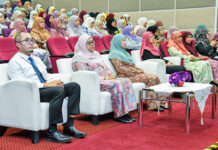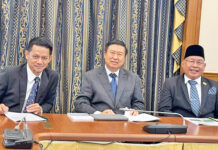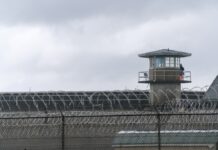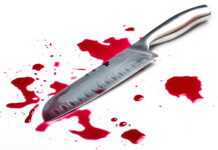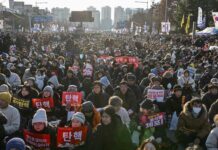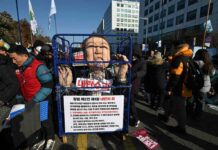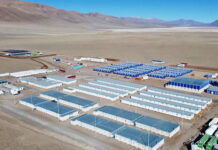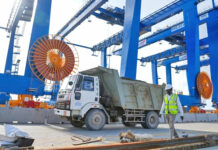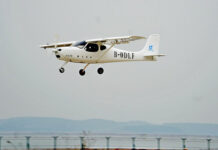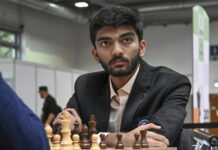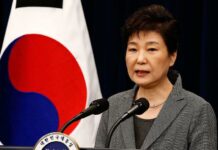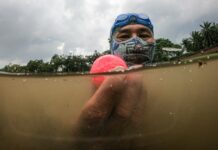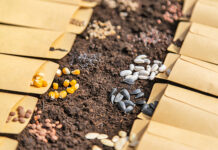KYIV, UKRAINE (AP) – Russia vowed to continue its bloody offensive in Ukraine as the war neared its seventh week yesterday, as President Vladimir Putin insisted the campaign was going as planned despite a major withdrawal and significant losses.
Thwarted in their push toward the capital, Kyiv, Russian troops focussed on the eastern region of Donbas, where Ukraine said it was investigating a claim that a poisonous substance had been dropped on its troops. It was not clear what the substance might be, but Western officials warned that any use of chemical weapons by Russia would be a serious escalation of the already devastating war.
Russia invaded on February 24 with the goal, according to Western officials, of taking Kyiv, toppling the government and installing a Moscow-friendly regime. In the six weeks since, the ground advance stalled and Russian forces lost potentially thousands of fighters and were accused of killing civilians and other atrocities.
Putin said on Tuesday that Moscow “had no other choice” and that the invasion aimed to protect people in parts of eastern Ukraine and to “ensure Russia’s own security”. He vowed it would “continue until its full completion and the fulfilment of the tasks that have been set”.
Meanwhile yesterday, Ukrainian President Volodymyr Zelenskyy was expected to receive the presidents of Poland, Lithuania, Latvia and Estonia — his staunch European allies.
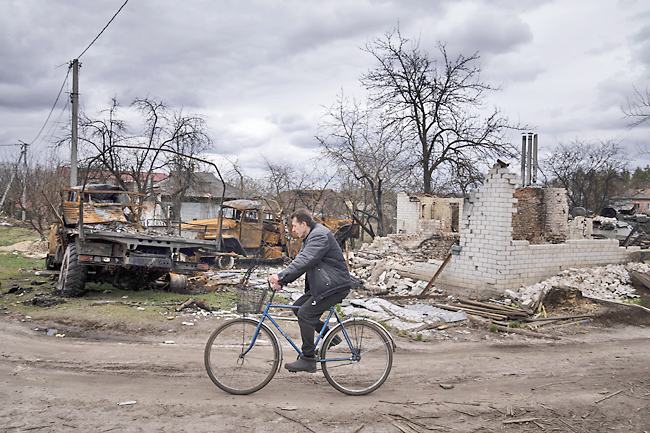
“We are visiting Ukraine to show strong support for the Ukrainian people, will meet dear friend President Zelenskyy,” Estonian President Alar Karis tweeted.
For now, Putin’s forces are gearing up for a major offensive in the Donbas, where Russian-allied separatists and Ukrainian forces have been fighting since 2014, and where Russia has recognised the separatists’ claims of independence. Military strategists said Moscow believes local support, logistics and the terrain in the region favor its larger, better-armed military, potentially allowing Russia to finally turn the tide in its favour.
In Mariupol, a strategic port city in the Donbas, a Ukrainian regiment defending a steel mill alleged that a drone dropped a poisonous substance on the city.
The assertion by the Azov Regiment, a far-right group now part of the Ukrainian military, could not be independently verified. The regiment indicated there were no serious injuries.
Zelenskyy said that while experts try to determine what the substance might be, “The world must react now.”
The claims came after a Russia-allied separatist official appeared to urge the use of chemical weapons, telling Russian state TV on Monday that separatist forces should seize the plant by first blocking all the exits. “And then we’ll use chemical troops to smoke them out of there,” the official, Eduard Basurin, said. He denied on Tuesday that separatist forces had used chemical weapons in Mariupol.
Ukrainian Deputy Defense Minister Hanna Maliar said officials were investigating, and it was possible phosphorus munitions — which cause horrendous burns but are not classed as chemical weapons — had been used in Mariupol, which has been pummelled by weeks of Russian assaults.
Western leaders warned that if chemical weapons are found to have been used, it would amount to a grievous breach of international law. US President Joe Biden for the first time referred to Russia’s invasion as a “genocide” and said “Putin is just trying to wipe out the idea of even being a Ukrainian.”
The Pentagon said it could not confirm the drone report but reiterated US concerns about Russia using chemical agents. Britain, meanwhile, has warned that Russia may resort to phosphorus bombs, which are banned in civilian areas under international law, in Mariupol.
Most armies use phosphorus munitions to illuminate targets or to produce smoke screens.
Deliberately firing them into an enclosed space to expose people to fumes could breach the Chemical Weapons Convention, said former laboratory head at the Netherlands-based Organization for the Prohibition of Chemical Weapons Marc-Michael Blum.


